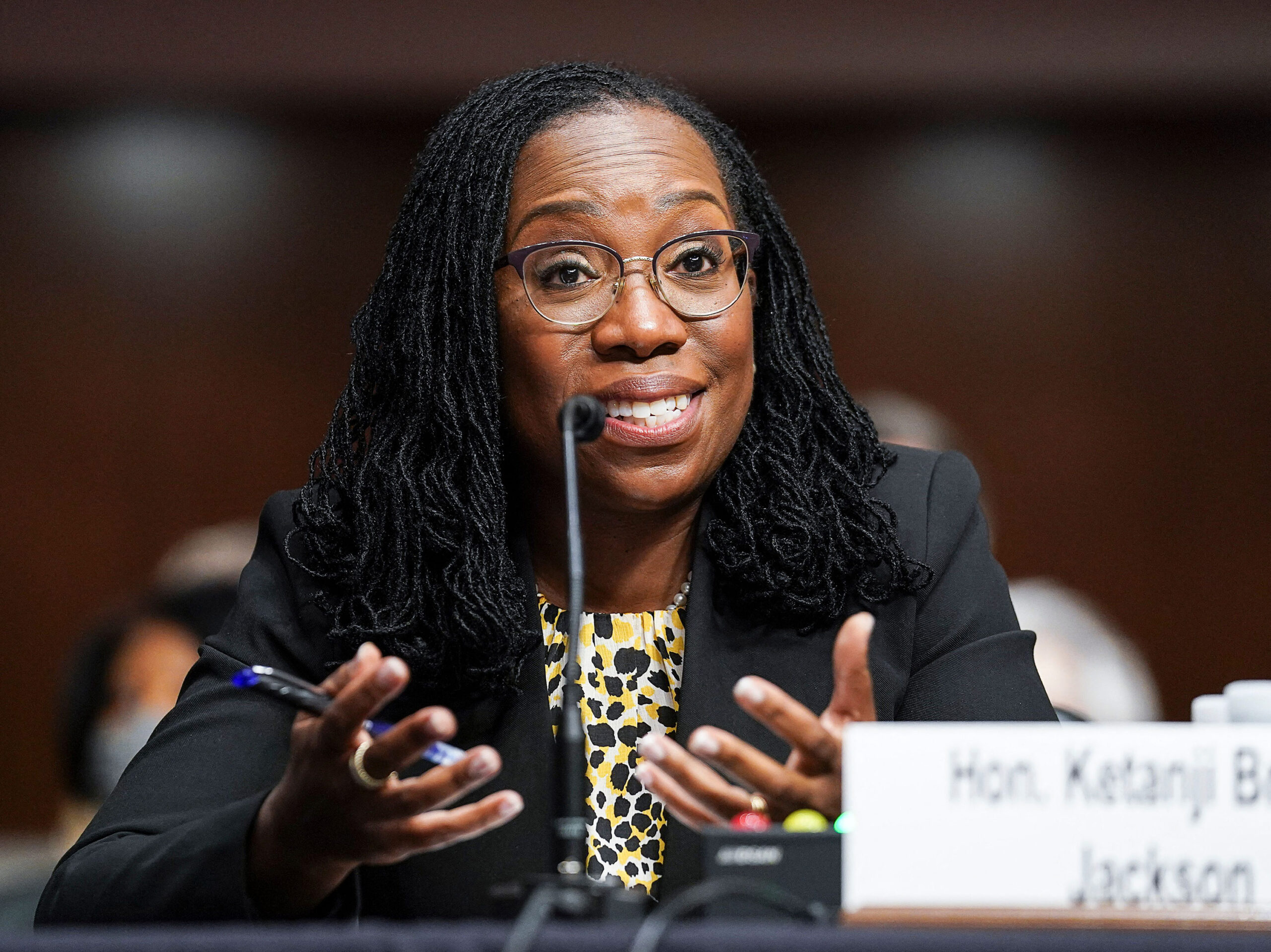The Senate voted Monday evening to confirm Judge Ketanji Brown Jackson, President Joe Biden’s pick to fill a vacancy on a powerful DC-based appellate court and one of the President’s most closely watched judicial nominees.
The vote was 53-44. Republican Sens. Lindsey Graham of South Carolina, Susan Collins of Maine and Lisa Murkowski of Alaska voted with Democrats in favor of confirmation.
The vote elevates Jackson from the US District Court for the District of Columbia to the influential US Court of Appeals for the DC Circuit, which is seen as a breeding ground for Supreme Court justices.
She is widely viewed as a potential Supreme Court pick if there were to be a vacancy on the high court during Biden’s time in office. Biden pledged during the campaign to name the first Black woman to the Supreme Court should a vacancy arise. Administration officials have stood by that pledge since Biden entered the White House, and Jackson has repeatedly come up as a leading candidate.
Her nomination cleared an initial procedural hurdle on Thursday to advance in the Senate with a vote of 52-46 and three Republican senators — Lindsey Graham of South Carolina, Susan Collins of Maine and Lisa Murkowski of Alaska — voting with Democrats.
Asked about his vote, Graham, who served as chair of the Judiciary Committee in the last session of Congress, told reporters, “I think she’s qualified. I think I try to be somewhat consistent here. I think she’s qualified for the job. She has a different philosophy than I do.”
The Democratic-led Senate has started taking up Biden judicial nominees in an effort by Democrats to rebalance the courts after then-President Donald Trump and Senate Republicans moved aggressively to install conservative jurists to the federal bench, including three Supreme Court justices.
Jackson was picked to fill the seat of Merrick Garland, who was confirmed by the Senate in March to serve as Biden’s attorney general. Garland was nominated by then-President Barack Obama to serve on the Supreme Court after the death of Justice Antonin Scalia, but Senate Republicans refused to consider his nomination.
Jackson, a 2013 Obama nominee to the US District Court for the District of Columbia, previously served as an assistant federal public defender, as well as a vice chair for the US Sentencing Commission. She is also a former clerk to Supreme Court Justice Stephen Breyer.
She is perhaps most known for her 2019 opinion ruling that former White House counsel Don McGahn must comply with a congressional subpoena concerning Russia’s interference in the 2016 presidential election.
“However busy or essential a presidential aide might be, and whatever their proximity to sensitive domestic and national-security projects, the President does not have the power to excuse him or her from taking an action that the law requires,” Jackson wrote.
“Stated simply, the primary takeaway from the past 250 years of recorded American history is that Presidents are not kings,” Jackson said.
At a Senate hearing in April, Jackson said her race doesn’t play a role in her work as a judge but that her experience as an African American jurist “might be valuable” should she be confirmed to the post.
“I don’t think that race plays a role in the kind of judge that I have been and would be,” Jackson told the Senate Judiciary Committee in response to a question from Republican Sen. John Cornyn of Texas. “I’m doing a certain thing when I get my cases. I’m looking at the arguments, the facts and the law. I’m methodically and intentionally setting aside personal views, any other inappropriate considerations, and I would think that race would be the kind of thing that would be inappropriate to inject into my evaluation of a case.”
But, Jackson said, “I’ve experienced life in perhaps a different way than some of my colleagues because of who I am, and that might be valuable — I hope it would be valuable — if I was confirmed to the court.”







